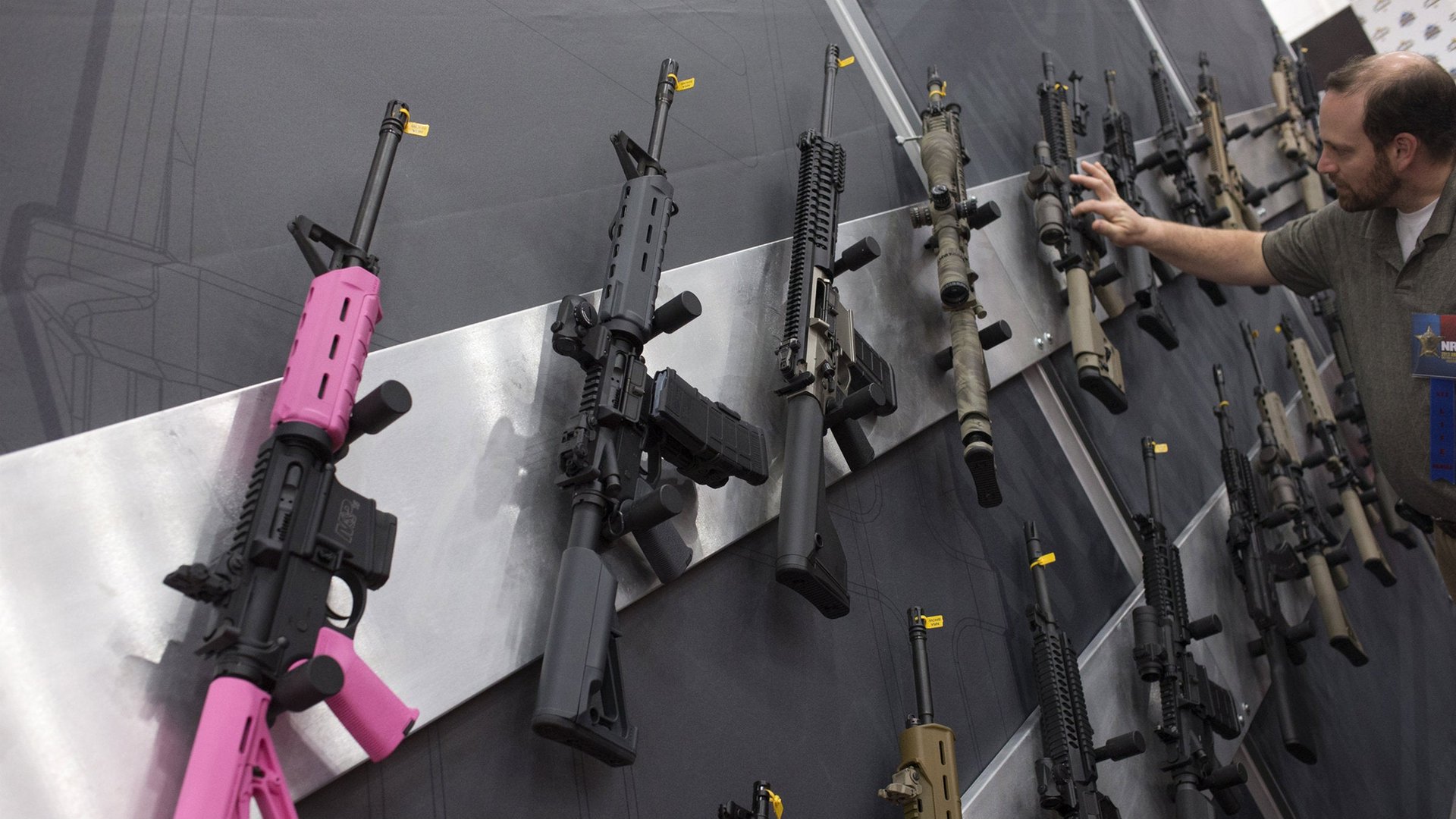On the anniversary of the Newtown massacre, Cerberus Capital finds a way to keep selling guns
Private-equity firm Cerberus Capital has been trying and failing to find a buyer for its portfolio of gun companies ever since one of its Bushmaster rifles was used in the Newtown, Connecticut school massacre, one year ago this week. Now, reports the Financial Times (paywall), Cerberus has found a way to reduce the embarrassment to its investors without actually selling the—highly profitable—gunmakers.


Private-equity firm Cerberus Capital has been trying and failing to find a buyer for its portfolio of gun companies ever since one of its Bushmaster rifles was used in the Newtown, Connecticut school massacre, one year ago this week. Now, reports the Financial Times (paywall), Cerberus has found a way to reduce the embarrassment to its investors without actually selling the—highly profitable—gunmakers.
Cerberus said in December last year it was putting Freedom Group—which dominates the US gun industry—up for sale, after pressure from institutional investors, which include various state pension funds such as California’s teachers’ fund, CalSTRS. Yet, despite the depressingly profitable nature of guns, there has been little, if any interest among potential buyers. The only bid of note came from Cerberus’ own CEO, and this was seen as a “stalking horse”, designed to set a floor price for the asset and tease out other offers. Yet even this bid was withdrawn in July.
The business officially remains up for sale, but the short term-solution, the FT reports, is to let investors pull funds out of Freedom Group while staying invested in Cerberus. Freedom Group will take on more debt, presumably allowing it to buy back the interests held by pension funds, similar to a share buyback.
That might actually be good for Cerberus’s returns, because the gun business remains an excellent business to be in. Dougherty and Company analyst Andrea James describes Freedom Group as “smart and profitable investment for Cerberus and its investor clients,” noting that the business operating profits are projected to rise 50% this year. Those earnings would now be spread among fewer Cerberus investors after those who want to get out do so, meaning that those who remain will enjoy an even higher return than before.
But at the same time, the lack of buyers for Freedom Group suggests any association with the firearms industry is toxic. Given the new climate of activism among pension funds, which are one of the biggest sources of capital for the private equity industry, it’s only a matter of time before it affects Cerberus’s ability to raise funds for future investments. Even CalSTRS remains concerned. ““We have not relented from our view that they should liquidate their investment in the company,” an official told the FT.
Cerberus, to be fair, also has a fiduciary responsibility to its investors to divest the asset at a fair price—after all, the returns it generates ultimately help pay for retirement for teachers, firemen, and police officers. According to the FT’s sources, there hadn’t been any interest or activity in the sale process for months, suggesting that anything less than a fire-sale was not achievable.
The silver lining in this outcome for gun-control advocates and other campaigners for ethical investing is that it shows growing pressure on private-equity funds can actually yield a result. Arguably, this is more than can be said for Congress.